RECHARGE on Tour: International Conference on Cultural Economics, Bloomington
The 22nd International Conference on Cultural Economics, organized by the Association for Cultural Economics International (ACEI) on a biennial basis, is consolidated as the main academic forum in the field of Cultural Economics.This year, the event took place in Bloomington, Indiana, US, with the Centre for Cultural Affairs of Indiana University as the local organizer. The scientific program was coordinated by Luis César Herrero, President-Elect of the ACEI and head UVA team in the RECHARGE project.
More than 150 academic papers were presented on a wide range of topics, from economic valuation and impact assessment of cultural elements, institutions and policies, cultural consumption and cultural participation to more specific aspects such as the creative economy, cultural diversity and inclusion or digitization and innovation in the field of culture.
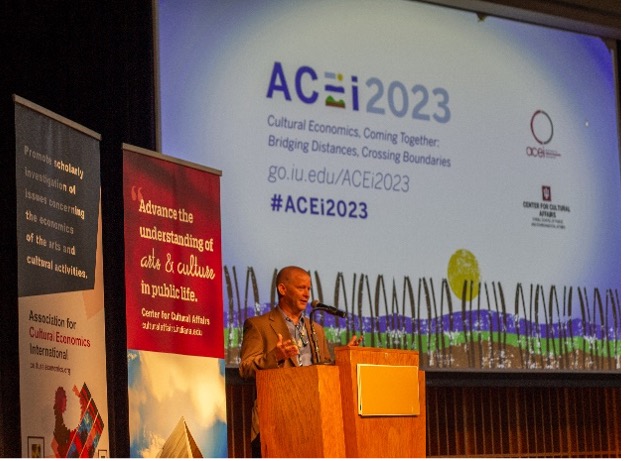

Titled Cultural Economics, Coming Together: Bridging Distances, Crossing Borders, the conference highlighted the need to expand the discipline's scope of study to new frontiers, such as the spatial dimension of cultural activities and extending the meaning of culture to closely related issues such as institutional aspects, cultural diversity, as well as cultural participation and engagement.
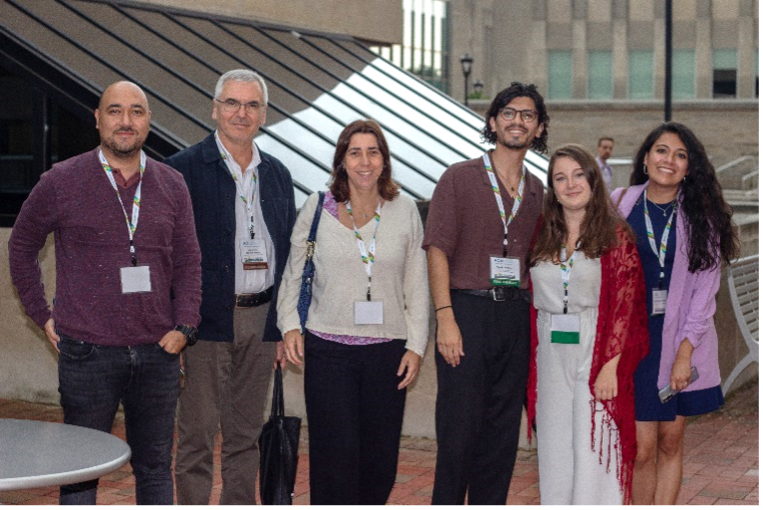
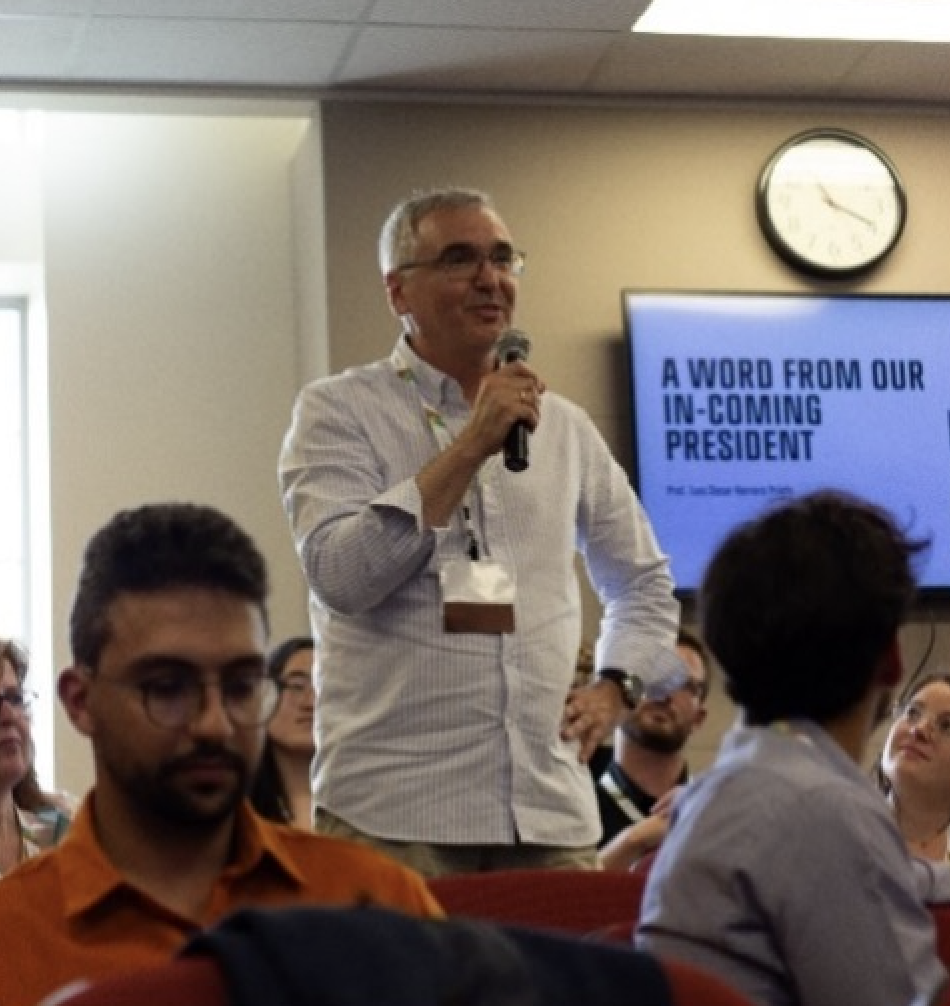
The Recognized Research Group on Cultural Economics from the University of Valladolid presented a total of seven research papers, including topics and methodologies closely related to the RECHARGE Project. In particular, two papers addressed the issues and themes we explore within RECHARGE:
- Valuing world heritage ensembles: the Coffee Cultural Landscape in Colombia by Jonathan Daniel Gómez-Zapata, Luis César Herrero-Prieto and James Alberto Arboleda Cardona
This work seeks to evaluate a novel case study which considers cultural heritage as an ecosystem. This combines cultural landscape with cultural heritage (material and immaterial such technological background) as well as public and private endowments. The Coffee Cultural Landscape in Colombia, declared a World Heritage Site in 2011 by UNESCO is taken as main case study. The economic valuation is carried out using the Choice Experiments methodology, which identifies not only the economic value of the cultural asset in general, but also the attributes or characteristics of the asset that are most valued by residents and tourists. This type of research provides useful results for cultural management and policy, as well as serving as arguments to protect and legitimise public investment in the cultural sphere, or to promote strategies and involve different stakeholders in the sustainability of cultural institutions.
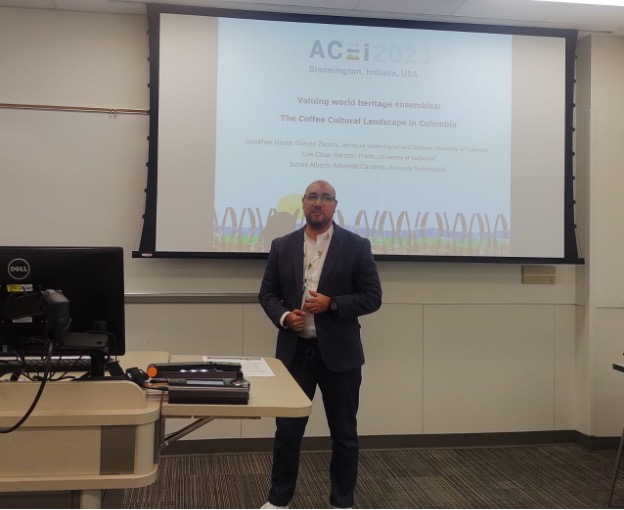
Would individuals value positively reducing the cultural area to build new contemporary buildings, or to implement a guided tour circuit with interactive devices, or would they prefer to keep it intact and preserved as it is now? Would the community be willing to make donations to promote awareness-raising activities on practices in the cultural landscape or for the creation of a website that collects the history, images or videos of the coffee plantation? This is the type of questions to which the Choice Experiments methodology provides an answer through a monetary scale. In the RECHARGE Project we use the same methodology to measure the value allocated by the community to different participatory dimensions of museums (co-governance, co-production, social co-innovation and technological co-innovation) through a scaled option set box. To this purpose, surveys will be carried out in the different cities of the project's partner museums: Prato, Limerick and Tallinn. Results are expected to be of great use to museums in developing their participatory business models.
- Social Impact and Return on Investment from Cultural Services: A Comparative Application to Public Libraries by María José del Barrio-Tellado and Jonathan Daniel Gomez-Zapata
This study seeks to estimate the social impact of the libraries that are part of the Public Library System of the city of Medellín in Colombia, and proposes an evaluation of cultural institutions based on the impact they have on their environment. Traditional evaluations of cultural institutions have focused on maximising the number of visitors; however, the changes introduced by new technologies have led to a loss of interest in the traditional functions of these institutions, reorienting their activity towards innovative models in which citizen participation takes on special relevance. The research proposes the calculation of the social return on investment (SROI) as a measure of the impact that a group of libraries has on their environment and, therefore, as an indicator of the social accreditation of these institutions. Throughout the RECHARGE project, the use of efficiency and social return methodologies has been proposed to assess the performance of participatory business models.
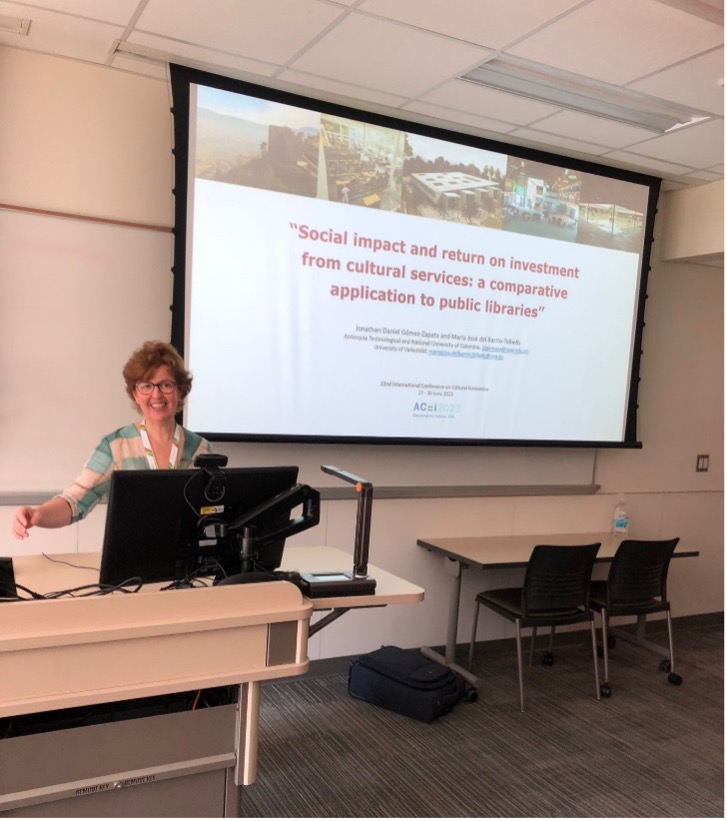
All in all, the 22nd International Conference on Cultural Economics has been a great opportunity for the team of the University of Valladolid to share, with researchers of recognised prestige in the discipline, the methodologies to be applied in the RECHARGE project, as well as to learn about the rest of the work that is being carried out on community participation in cultural institutions at an international level.
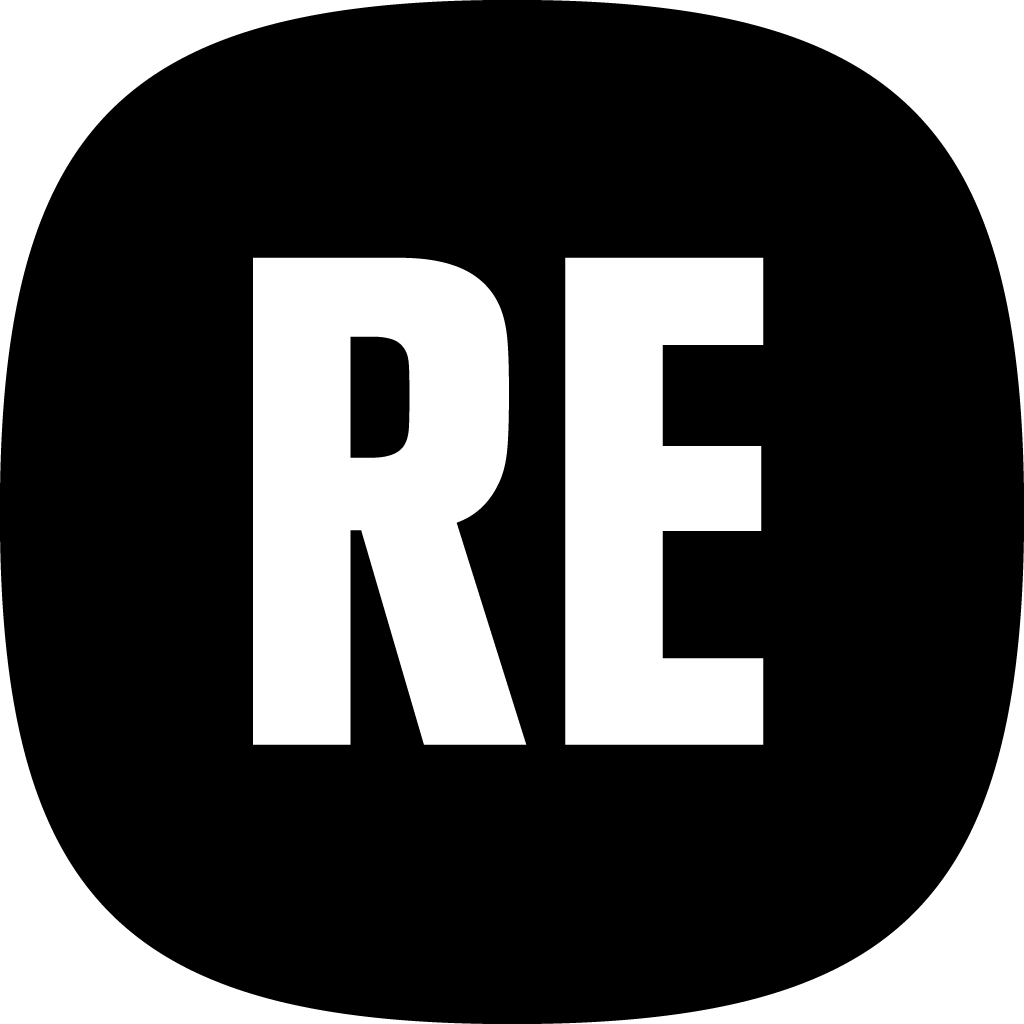
Share